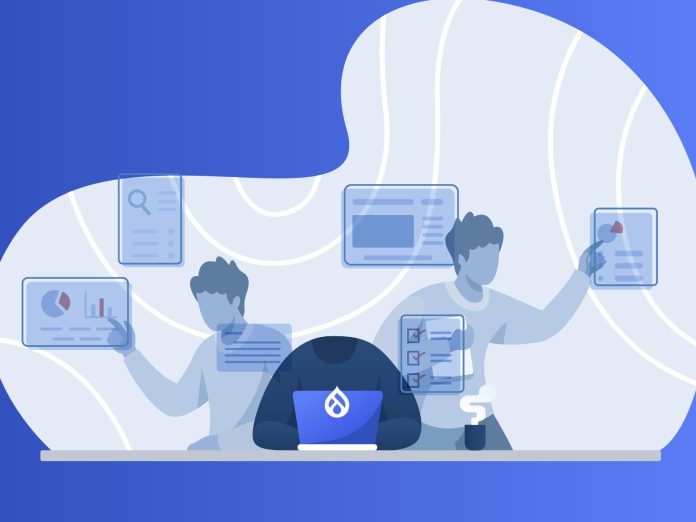Choosing between classic and headless Drupal and do not know what is better?
Drupal is one of the most popular content management systems (CMS), which is valued for its versatility, scalability and flexibility.
Classic Drupal offers a traditional approach to creating websites. It is valued for having all components necessary for development in the same place. In other words, the frontend and backend are connected.
In turn, in decoupled Drupal developers will deal with the interface separated from the server part. That allows them to create their interface with a large set of tools. This approach provides better flexibility and faster downloading of content via API on different devices.
To make it easier for you to decide what is suitable for your project, we will describe in more detail the strengths and weaknesses of each version of this CMS. Stay tuned!
Table of Contents
Advantages and Disadvantages of Classic Drupal CMS
Let’s start with the advantages of this content management system:
- Ease of use
Classic or Monolithic Drupal is a complex, universal solution that even companies without experience in web development can deal with. Here you can find many themes and templates that make it easier to create your own website.
- Functionality
This state-of-the-art CMS offers a wide range of features and can be used to work with even complex websites.
In particular, these include: creating a page without code, access control and taxonomy management, administrative tools for content creation and user management, and more.
- Wide range of modules
If the proposed functions are not enough for the implementation of your tasks, a wide range of modules is available to you. These modules can be added to create new features that meet your needs.
- Low cost
Monolithic Drupal may be cheaper than Headless because it does not require external CMS and attraction of qualified developers with expensive services.
Let’s move on to the disadvantages:
- Limited flexibility
Classic Drupal is more limited than decoupled when it comes to how the content is displayed.
- Update timeline
Installing updates can take quite a while. And with the introduction of updates, it may be necessary to make significant changes to the website.
- Weak capabilities of external interface
Classic Drupal has limited external interface capabilities compared to the Headless version, as it supports only one external interface.
- Integration Challenges
A comprehensive solution can severely restrict the user when they need to implement third-party tools or APIs.
Headless Drupal Advantages and Disadvantages
Advantages:
- Better flexibility and scalability.
Headless Drupal offers separate external and internal interfaces to create more flexible web applications.
It is also possible to integrate technologies incompatible with the classic CMS to create a website.
- High download speed
Decoupled CMS is faster than Monolithic. That reduces the loading time so that users are satisfied with their interaction with your resource.
- Improved interaction
Split architecture provides the flexibility to provide ready-made design options and experiences, such as AR/VR, and chatbots, or create a unique layout for a specific product.
- Adaptability
No matter on which device your customers browse your site, its design will always be adaptive.
Disadvantages:
- High-level technical expertise
Developers need specialized knowledge and experience with external and internal technologies, which complicates and increases implementation time.
- Development costs
When choosing a split CMS, you should be prepared that the development and maintenance costs of such a site will be higher.
After all, you will pay experienced developers for their knowledge of the interface, which should be deeper than that of the developers on traditional Drupal.
What CMS to Choose for Your Website?
Choosing the right type of CMS depends on the unique needs of your project.
So, decoupled Drupal may be required where you need:
- Make the site more interactive and independent;
- Service several channels and microsites;
- Improve your project’s performance by using caching and other methods to improve stability;
- Get a fast downloadable website that will be more user-friendly;
- Save time on site upgrades so that content editors are not affected by the upgrade. This allows you to create and edit your resource simultaneously.
Still not sure what is the best option for your project?
We recommend consulting with the digital agency Drupfan. Industry experience of this company covers the sphere of education, finance, publishing, insurance, automobile industry, various start-ups and much more.
First, you can contact the Drupfan development agency to audit the performance of your website and find out what features your resource lacks.
Then, if necessary, you can order the development. This company will be able to implement a project of any level of complexity: from the transition of the already existing platform to headless Drupal to the creation of a modern decoupled site from scratch.
You can be sure: here they carefully consider all your needs and find the solution that will be most effective for your business!



















